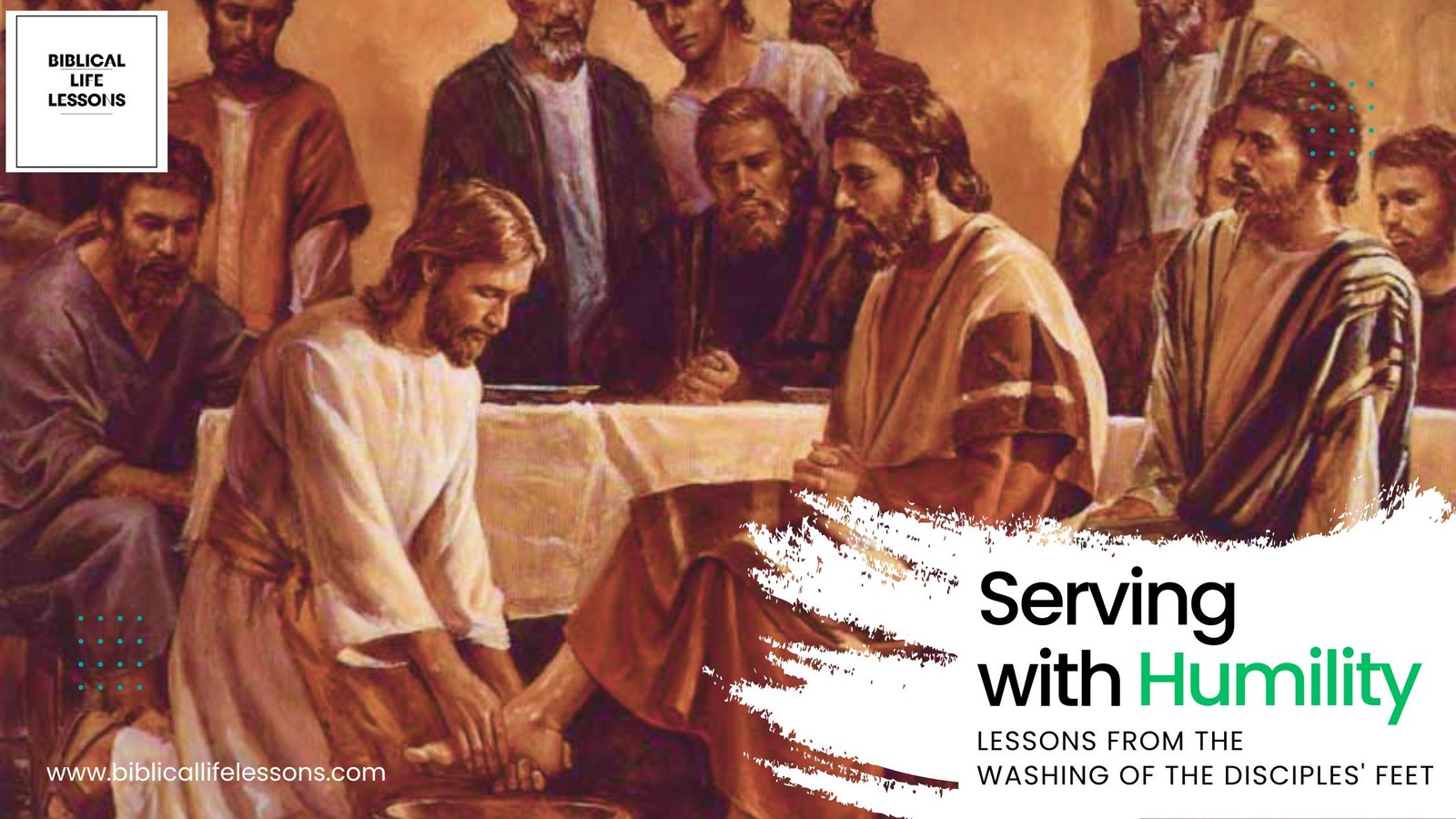In the Gospel of John, a poignant and transformative moment unfolds as Jesus, the Son of God, takes on the role of a humble servant. The scene is set during the Last Supper, where Jesus, fully aware of his divine nature, chose to teach his disciples a profound lesson in humility through the simple yet profound act of washing their feet. This act of servitude imparts timeless lessons on the essence of leadership, selflessness, and the transformative power of humility.
Understanding the Cultural Context:
In the ancient Middle Eastern culture of Jesus’ time, foot washing was a customary practice reserved for the lowest servants in a household. Roads were dusty, and the wearers of sandals would inevitably have dirty and calloused feet. The task of foot washing was considered menial and often assigned to the lowest-ranking household members. By taking on this role, Jesus challenged societal norms and turned a seemingly mundane task into a profound lesson in servant leadership.
Leadership through Humility
As Jesus approached his disciples with a basin of water and a towel, he set an example that transcends time. The act of washing feet was not merely a physical cleansing; it symbolized a purification of the heart and a demonstration of genuine care for others. In leadership, humility becomes a powerful tool for building trust and fostering a sense of unity among those being led. Jesus, the ultimate leader, showed that true greatness lies in serving others.
Breaking Down Barriers
The disciples were initially shocked and resistant to the idea of their revered teacher taking on the role of a servant. Peter, in his typical impulsive manner, protested, but Jesus gently explained the necessity of the act. By breaking down the barrier between teacher and disciple, master and servant, Jesus emphasized the equality and mutual respect that should characterize relationships among his followers. This lesson extends beyond the disciples’ immediate circle, challenging us to break down societal barriers and treat all individuals with humility and respect.
The Call to Imitate
After washing the disciples’ feet, Jesus urged them to follow his example: “If I then, your Lord and Teacher, have washed your feet, you also ought to wash one another’s feet” (John 13:14, ESV). This call to imitate Christ’s humility extends to all believers. It encourages a lifestyle of selfless service and a willingness to engage in acts of kindness, regardless of societal expectations or personal comfort.
Transformation through Humility
The washing of the disciples’ feet marked a transformative moment for them. It challenged their preconceived notions of leadership and authority, paving the way for a new understanding of servanthood. This act of humility foreshadowed the ultimate act of service – Jesus’ sacrificial death on the cross. Through humility, Jesus not only washed their feet but also washed away their sins, providing the ultimate example of servant leadership.
The lesson from the washing of the disciples’ feet is timeless and universally relevant. It challenges us to embrace humility in our interactions with others, regardless of our positions or status. By serving with humility, we follow the example set by Jesus and contribute to the building of a more compassionate and interconnected community, where love and service are the guiding principles.











